New Delta Council President Continuing the Vision
Clarksdale native Tripp Hayes, the new president of Delta Council, grew up on a farm. After graduating from Lee Academy, he went on to get a B.S. in banking and finance at the University of Mississippi.
His first job after college was with the Cotton Board in Memphis, Tenn. He then went back to school to get an MBA from Millsaps College. Following that, Hayes went to work for Staplcotn in Clarksdale. But soon he was drawn back to the land to take over the farm from his father in 1993.
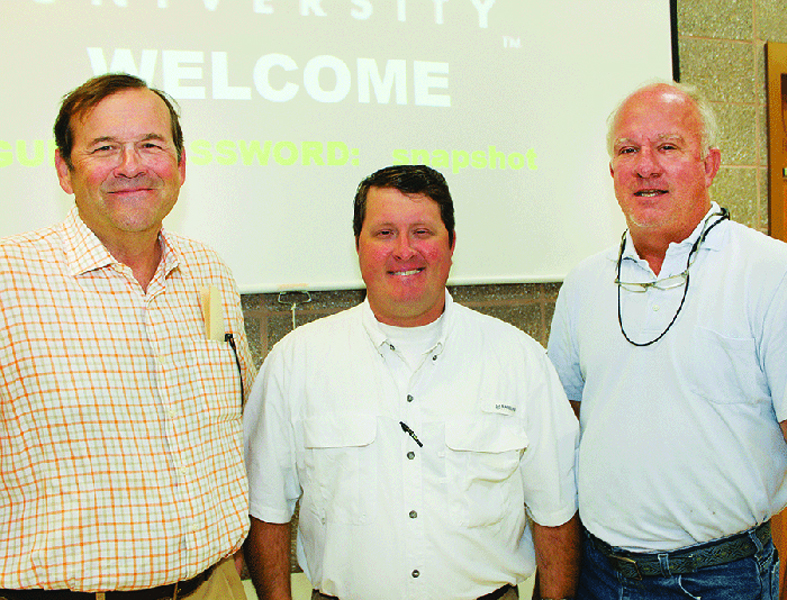
“I didn’t intend to come back to the farm,” says Hayes. “But I met with my dad and he said, ‘If you want to come back to the farm, I want you because it isn’t that fun for me anymore.’ And that is why I ended up coming back to the farm. You have to love it to do it because it can be challenging. Woods Eastland, a former president of Delta Council, said the farming profession is the only one where you are told what you are going to receive for products, what you will pay for inputs, and you pay the freight both ways.”
He considers his father, the late Stan Hayes, his biggest mentor. But he also credits the guidance from his neighbor Johnny Laney, as well as Harry Flowers and Woods Eastland of Staplcotn.
There are many successful farmers without a college degree. But that education has served Hayes well in running a large ag production operation in Coahoma County.
“Farming is at the end of the day a business and you have to treat it as such,” says Hayes, who produces cotton, soybeans and corn. He particularly enjoys watching the crops grow and seeing how they deal with different weather conditions and improving the land to make that possible.
His education and ag producer experience have been a bonus in the volunteer work he has done including thirty-one years of service at Delta Council, which recently named him president of the regional development organization.
“I have always been terribly impressed by the work Delta Council has been able to accomplish over the years,” he says. “And having eighteen or nineteen counties kind of pushing the wagon together makes a much more effective effort.”

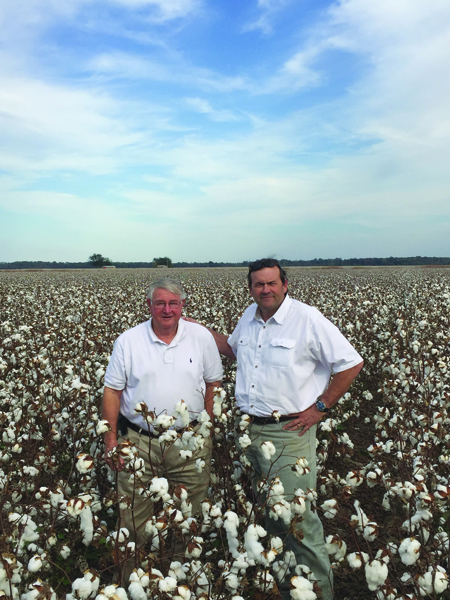

Delta Council Executive Director Frank Howell says Hayes understands the importance of leadership and community service.
“Tripp has been a highly effective leader in agriculture, his community and the Delta,” says Howell. “And whatever he does, whether it is farming, serving the agricultural industry or sitting on the local hospital board, he does it well.”
Agriculture is what drives the economy of the Mississippi Delta and the state, so Delta Council has a big focus on ag. A lot of that involves working on Congressional representatives in Washington D.C. to lobby on the Farm Bill and other initiatives important to ag.
“Delta Council was formed to address flood control, farm policy and transportation in the Delta, and has been successful on all fronts,” says Hayes. “The challenge now is navigating high input costs coupled with low commodity prices. One of our biggest priorities is improving the safety net for our farmers with a new Farm Bill.”
“Addressing flood control in particular is important, including completing the pumps in the South Delta and repairing the Arkabutla Dam. The Arkabutla Dam hasn’t failed but it is in a precarious situation where water is coming through the dam. They are in the process of trying to get a temporary fix on it and then move on to a permanent fix. If there was a big rain event, it would be a devastating situation. Thousands of acres of farmland and many homes would be flooded near Marks.”
Addressing adequate water supplies for the Delta is also critical. As is being seen in many areas of the country, aquifer levels have been dropping and the government has been taking actions to address sustainability.
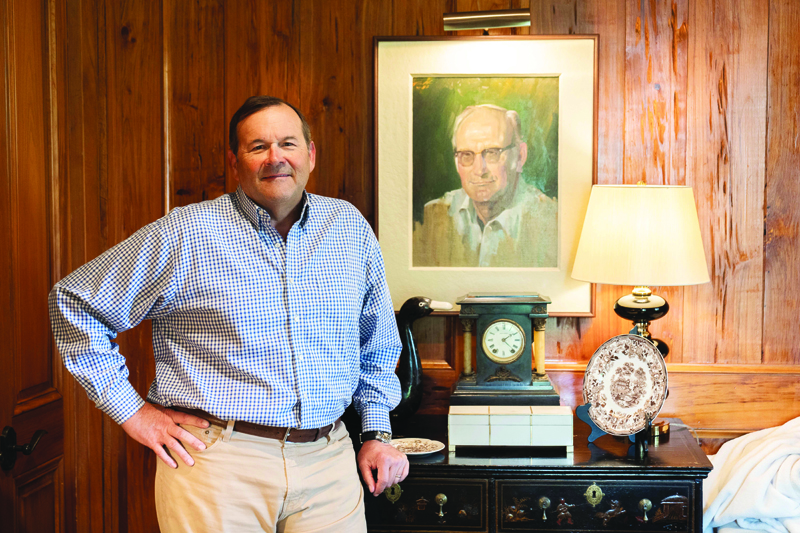
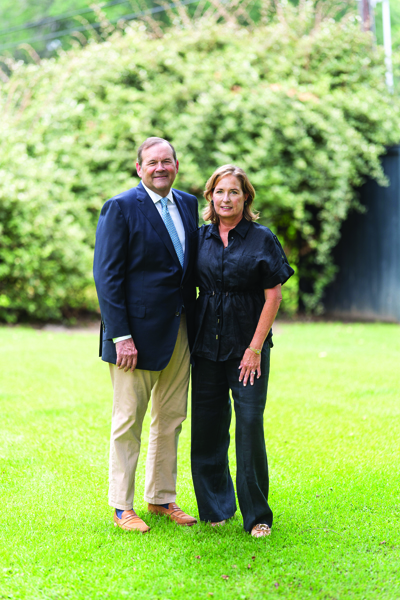
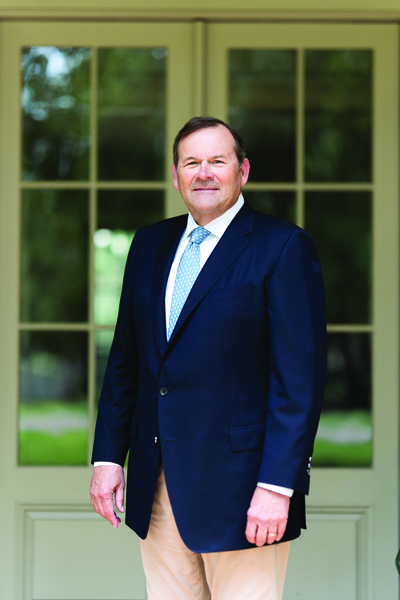
“All the crops in the Delta are irrigated so sustaining the aquifer is of great importance,” says Hayes. “We are working on several fronts. One of the most promising is an injection well system to move water from the Yazoo and Tallahatchie Rivers to replenish the aquifer in areas that are being depleted. Water conservation is a piece of that puzzle. Precision irrigation that uses a hole punching system and timers can save a lot of water. Pipe planner is used on our farm. When we first started doing it, my people balked. But now they don’t punch holes unless they have a plan about what size holes to punch. It spreads out the water much more evenly. You don’t have to waste water on one end of the field waiting for the rest of it to water out.”
Another big-ticket item that would have multiple benefits for sustaining and attracting new business and industry is completion of Interstate-69, also known as the NAFTA highway because, when completed, it will run from Mexico to Canada.
“A lot of 1-69 has been completed but we have got to start getting some traction on completing it going south from Tunica,” says Hayes. “We need some funding to start some progress on it. It’s complete all the way down to Tennessee’s northern border and then it is complete around Memphis. Everything else is in the development stage and we just need to start moving the needle somewhat. The Delta would benefit from increased industry. If you have a major highway system, then someone is much more likely to locate a distribution center or a factory to have access to interstate transportation. It would also benefit agriculture.”
Improving healthcare in the Delta is another goal. Hayes says that is a tough nut to crack. Delta Council has come out with a plan, the Delta Health Initiative, but it has failed to get through the Mississippi Legislature at this point.
“It is a very difficult problem,” says Hayes. “We have just got to figure out a way to do it. We don’t necessarily have all the answers to it but it could involve streamlining things, concentrating specialties in one area and obtaining economies of scale to help cut costs. I think we are going to have to adapt to the current situation with a decline in population as has been seen in most of rural America. We don’t have the populations to support these big hospitals, but we’ve got to maintain rural health care. We need to figure out what makes it work.”
A major success story promoting the economy and helping people get good jobs is the workforce development program called Delta Strong.
“Delta Strong has been very instrumental in attracting industry to the Delta, and will continue those efforts moving forward,” he says.
Hayes has also lent his talents and knowledge of the Delta economy to banking.
“Tripp has served on our Board of Directors for the past twenty-three years and has brought valuable knowledge and understanding not only of banking but engagement in our community,” says Russell S. Bennett, president & CEO, First National Bank of Clarksdale, Bank of Oxford, a branch of FNBC. “Tripp will provide a host of skills that will position Delta Council to continue its great work.”
Hayes has volunteered with a number of organizations including delivering for the Care Station in Clarksdale for many years, something he finds particularly rewarding.
Hayes and his wife, Paige, have three daughters. Their eldest daughter, Olivia, is married to Tripp Hughes and lives in Clarksdale. Their middle daughter, Kate, and youngest daughter, Mary Claire, both live in New York.
“My wife and I love to travel and attend Ole Miss sports events together,” he says. “We have two German shorthair pointers that I enjoy taking on quail hunts. I also enjoy fishing for speckled trout in Louisiana and duck hunting anywhere.”
Photography by Austin Britt

